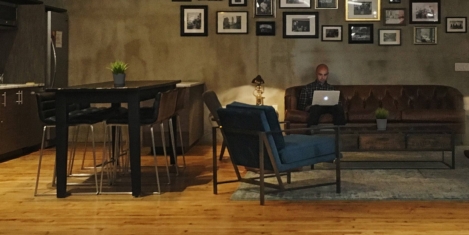May 23, 2017
Over a quarter of workplace absences are down to psychological conditions 0
 HR professionals will, on average, oversee 15 staff with mental health conditions each year, according to new analysis from consultancy, the Clear Company, which also claims that mental health in the workplace as the second biggest challenge facing employers in the next five years, with respondents stating that over a quarter (26 percent) of workplace absences were down to psychological conditions. The UK Workplace Wellbeing Survey did find that employers are already putting interventions in place to support staff, with 81 percent offering line manager training (around recognising stress within the workplace), 75 percent offering occupational health support, 72 percent offering employee assistance programmes and a further 62 percent offering separate counselling support.However, according to a recent study by Legal & General, less than 10 per cent of employees feel comfortable disclosing mental health conditions to their employer – meaning that HR may face a challenge in identifying and supporting these individuals adequately.
HR professionals will, on average, oversee 15 staff with mental health conditions each year, according to new analysis from consultancy, the Clear Company, which also claims that mental health in the workplace as the second biggest challenge facing employers in the next five years, with respondents stating that over a quarter (26 percent) of workplace absences were down to psychological conditions. The UK Workplace Wellbeing Survey did find that employers are already putting interventions in place to support staff, with 81 percent offering line manager training (around recognising stress within the workplace), 75 percent offering occupational health support, 72 percent offering employee assistance programmes and a further 62 percent offering separate counselling support.However, according to a recent study by Legal & General, less than 10 per cent of employees feel comfortable disclosing mental health conditions to their employer – meaning that HR may face a challenge in identifying and supporting these individuals adequately.













 Seven in ten UK employees – equivalent to 18 million nationally – have gone to work feeling unwell when they should have taken the day off, while less than a quarter (23 percent) say they have taken a day off work sick when they were not actually unwell, indicating that UK employees are three times more likely to go to work unwell than they are to ‘pull a sickie,’ a new report claims. The fourth edition of the Aviva Working Lives Report, which examines the attitudes and experiences of employers and employees on issues affecting the present and future of the UK workplace – also carries a wake-up call to businesses, as more than two in five (43 percent) employees feel their employer puts the results of the company ahead of their health and wellbeing as more than two in five (41 percent) say their work will pile up if they are off sick.
Seven in ten UK employees – equivalent to 18 million nationally – have gone to work feeling unwell when they should have taken the day off, while less than a quarter (23 percent) say they have taken a day off work sick when they were not actually unwell, indicating that UK employees are three times more likely to go to work unwell than they are to ‘pull a sickie,’ a new report claims. The fourth edition of the Aviva Working Lives Report, which examines the attitudes and experiences of employers and employees on issues affecting the present and future of the UK workplace – also carries a wake-up call to businesses, as more than two in five (43 percent) employees feel their employer puts the results of the company ahead of their health and wellbeing as more than two in five (41 percent) say their work will pile up if they are off sick.
 The UK economy is about to be hit by a fall in basic pay awards and real wages warns the CIPD, which has found that employers’ median basic pay expectations in the 12 months to March 2018 have fallen to 1 percent compared to 1.5 percent three months ago, which is lower than at any time during the past three and a half years. The findings from the latest CIPD/The Adecco Group Labour Market Outlook survey are consistent with recent Labour Market Outlook reports, which have indicated a slowing in the rate of basic pay growth, and with official labour market data. The report also found that 12 percent of private sector firms say the UK’s decision to leave the European Union has led them to consider relocating some or all of their business operations abroad. Popular relocation destinations include the Republic of Ireland (18 percent), Germany (17 percent) and France (13 percent).
The UK economy is about to be hit by a fall in basic pay awards and real wages warns the CIPD, which has found that employers’ median basic pay expectations in the 12 months to March 2018 have fallen to 1 percent compared to 1.5 percent three months ago, which is lower than at any time during the past three and a half years. The findings from the latest CIPD/The Adecco Group Labour Market Outlook survey are consistent with recent Labour Market Outlook reports, which have indicated a slowing in the rate of basic pay growth, and with official labour market data. The report also found that 12 percent of private sector firms say the UK’s decision to leave the European Union has led them to consider relocating some or all of their business operations abroad. Popular relocation destinations include the Republic of Ireland (18 percent), Germany (17 percent) and France (13 percent).










 Employees coming into work when sick are contributing to a rising trend of ‘presenteeism’ across the UK, with more than half (52 percent) of UK workers admitting to going to work when their performance is negatively affected by work-related health issues, a new survey claims. A third (34 percent) of workers have even considered moving jobs due to the negative impact of their work environment on their health – the highest percentage across Europe. The report from Fellowes, published to coincide with World Day for Safety and Health at Work, argues when a worker is present but not able to perform their function properly, it compromises their productivity. With most employees continuing to work at sub-par levels rather than taking days off to recover, this also prolongs the effect of illness. Subsequently, businesses are experiencing a detrimental knock-on impact on the quality and volume of work produced, with a further impact on overall business performance.
Employees coming into work when sick are contributing to a rising trend of ‘presenteeism’ across the UK, with more than half (52 percent) of UK workers admitting to going to work when their performance is negatively affected by work-related health issues, a new survey claims. A third (34 percent) of workers have even considered moving jobs due to the negative impact of their work environment on their health – the highest percentage across Europe. The report from Fellowes, published to coincide with World Day for Safety and Health at Work, argues when a worker is present but not able to perform their function properly, it compromises their productivity. With most employees continuing to work at sub-par levels rather than taking days off to recover, this also prolongs the effect of illness. Subsequently, businesses are experiencing a detrimental knock-on impact on the quality and volume of work produced, with a further impact on overall business performance.








May 26, 2017
An overdue attempt to connect smart buildings with smart people 0
by Xenia Kingsley • Comment, Property, Technology
(more…)